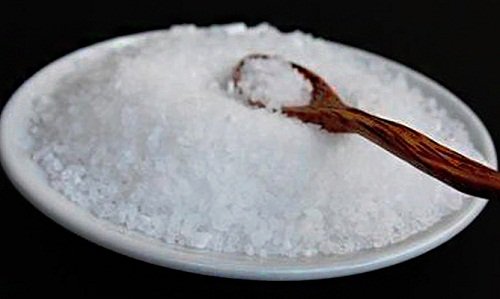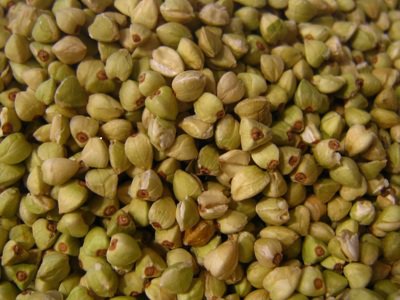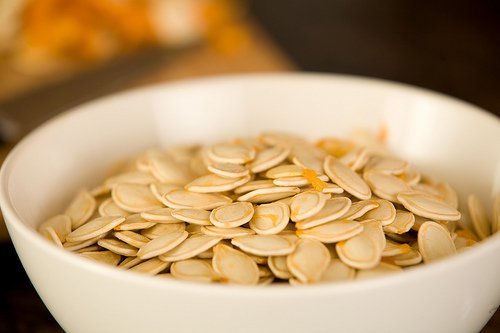5 Nutrients that May Help Keep Your Brain Active and Healthy


Written and verified by psychologist Valeria Sabater
Do you think your diet helps you keep your brain active and healthy? The truth is that you can never really be sure. Sometimes it’s easy to make mistakes when it comes to your eating habits, and at the moment when you least expect it, they take their toll.
Poor circulation that results in blood clots or hardening of the arteries is certainly a factor to consider. In today’s article, we want to talk about this subject and tell you how to help keep your brain active and healthy by choosing a proper diet with the right nutrients.
The best nutrients that may help keep your brain active and healthy
1. Magnesium

Therefore, magnesium is an essential component for helping maintain an active and healthy brain. Thus, it’s a good idea to get between 300 to 350 milligrams of this mineral every day.
As you know, you can always make up for any deficit by taking supplements sold in pharmacies. Below, we list the various food options that can also help you get this essential nutrient:
- Almonds.
- Sesame seeds.
- Whole grains.
- Cocoa.
- Soybeans.
- Brown rice.
- Spinach.
- Chickpeas.
- Parsley.
2. Carbohydrates

Read more here: 8 Carbohydrate-Rich Foods
Your brain needs these elements to regulate many of its basic processes, in addition to providing energy stores. It’s interesting to note that because carbohydrates help stimulate the body’s insulin production, helping to produce amino acids like tryptophan.
These amino acids can be essential for relaxation and the reduction of stress levels. And as you know, stress is one of the worst enemies when it comes to keeping an active and healthy brain.
What are some of the healthiest carbohydrates you can choose?
- Oats.
- Whole grains.
- Beans.
- Buckwheat.
- Olive oil.
- Peas.
3. Phosphorus

The relationship between brain health and getting adequate levels of phosphorus is supported by a large body of science and research. Numerous studies have revealed the importance of this mineral for the production of myelin and many of your basic cognitive functions.
What foods can help you increase your phosphorus intake?
- Cheese.
- Sardines and shellfish.
- Dark chocolate.
- Sugar-free Greek yogurt.
- Eggs.
- Meat and poultry.
4. Vitamins B6 and B12

Discover: 6 Vitamins You Must Have in Your Diet
Foods rich in vitamins B6 and B12
- Pistachios.
- Bananas.
- Egg yolk.
- Nuts.
- Shellfish.
- Veal and lamb.
- Trout, tuna, and sardines.
- Yogurt.
5. Zinc

You’ll be interested to discover that zinc is an essential element that may boost memory function and cognitive stability. People who suffer from a zinc deficiency often suffer from epilepsy.
For these reasons, it’s important to always include adequate amounts of zinc in your diet. It may help improve the brain’s hippocampal function and also may enhance memory and learning.
Foods rich in zinc
- Oysters.
- Crab.
- Peanuts.
- Dark chocolate.
- Pumpkin seeds.
- Sesame seeds.
- Wheat germ.
- Lamb.
In conclusion, we want to remind you that in addition to all these nutrients, you should keep your mind busy, do things that spark your curiosity, and lead a healthy physical life.
Try to learn something new every day, strengthen your relationships with those around you, and always stay optimistic and enthusiastic. Watch your stress levels, and don’t forget to add the above foods to your diet.
All cited sources were thoroughly reviewed by our team to ensure their quality, reliability, currency, and validity. The bibliography of this article was considered reliable and of academic or scientific accuracy.
- McIntosh, T. K., Vink, R., Yamakami, I., & Faden, A. I. (1989). Magnesium protects against neurological deficit after brain injury. Brain research, 482(2), 252-260. https://www.sciencedirect.com/science/article/pii/0006899389911888
- Gibson, E. L. (2007). Carbohydrates and mental function: feeding or impeding the brain?. Nutrition Bulletin, 32, 71-83. https://onlinelibrary.wiley.com/doi/abs/10.1111/j.1467-3010.2007.00606.x
- Fishbein, D. H., Thatcher, R. W., & Cantor, D. S. (1990). Ingestion of carbohydrates varying in complexity produce differential brain responses. Clinical Electroencephalography, 21(1), 5-11. https://journals.sagepub.com/doi/abs/10.1177/155005949002100108
- Dawson, R. M. C., & Richter, D. (1950). The phosphorus metabolism of the brain. Proceedings of the Royal Society of London. Series B-Biological Sciences, 137(887), 252-267. https://royalsocietypublishing.org/doi/abs/10.1098/rspb.1950.0033
- Baraona, R. M., SEPÚLVEDA, L. Q., SAAVEDRA, I. S., & Salas, R. S. (2011). Composición nutracéutica que comprende extracto de shilajit, ácido fólico, vitamina b12 y vitamina b6 y su uso para prevenir y/o tratar enfermedades neurodegenerativas y/o el deterioro cognitivo asociado al envejecimiento cerebral. https://patents.google.com/patent/WO2011041920A2/es
- Takeda, A. (2001). Zinc homeostasis and functions of zinc in the brain. Biometals, 14(3-4), 343-351. https://link.springer.com/article/10.1023/A:1012982123386
This text is provided for informational purposes only and does not replace consultation with a professional. If in doubt, consult your specialist.








